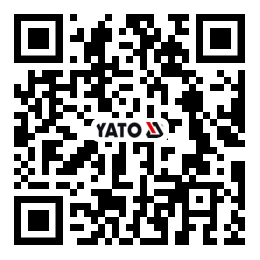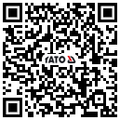What Are the System Certifications Required for Cemented Carbide Roll Rings?
Introduction to Cemented Carbide Roll Rings
Cemented carbide roll rings are vital components in modern steel and metal rolling mills. Made from tungsten carbide powder bonded with cobalt or nickel, these rings deliver exceptional hardness, wear resistance, and durability. They are widely used in wire rod mills, bar mills, and seamless pipe rolling lines where reliability and longevity are critical.
While the material science behind cemented carbide ensures durability, system certifications guarantee product reliability, consistency, and compliance with international standards. Without proper certifications, manufacturers risk rejection in global markets, operational issues, and loss of client trust.
This guide explores the essential system certifications for cemented carbide roll rings, their importance, and their impact on manufacturing and global competitiveness.
Understanding System Certifications
What Are System Certifications in Manufacturing?
System certifications are formal approvals from recognized regulatory or standardization bodies. They ensure that manufacturing processes, environmental controls, and occupational safety measures meet international benchmarks.
For cemented carbide roll rings, certifications verify:
- Quality consistency in production.
- Environmental compliance of raw materials and processes.
- Workplace safety for employees involved in powder metallurgy.
- Sustainability in energy and waste management.
Global vs. Regional Certification Standards
Global certifications, such as ISO standards, are universally recognized. Regional certifications, like CE (Europe) or RoHS (EU directives), address specific market requirements. Compliance with both is essential for manufacturers targeting international clients.
ISO Certifications for Cemented Carbide Roll Rings
ISO 9001: Quality Management System
ISO 9001 ensures standardized quality procedures across all production stages—from powder processing to sintering, machining, and inspection. It emphasizes:
- Continuous improvement.
- Customer satisfaction.
- Defect reduction.
A certified ISO 9001 supplier guarantees consistent product quality and reliable delivery for steel manufacturers.
ISO 14001: Environmental Management System
ISO 14001 certification ensures manufacturers:
- Minimize carbon emissions during sintering.
- Control hazardous waste from cobalt/nickel use.
- Implement resource-efficient processes.
This aligns with global ESG (Environmental, Social, Governance) initiatives and enhances brand reputation.
ISO 45001: Occupational Health & Safety
Powder metallurgy involves hazards like tungsten carbide dust. ISO 45001 ensures:
- Ventilation and dust control in workshops.
- Protective equipment for operators.
- Emergency response systems.
This certification demonstrates a commitment to employee safety.
ISO 50001: Energy Management
Energy-intensive processes like sintering require efficient management. ISO 50001 reduces:
- Energy waste.
- Production costs.
- Environmental footprint.
This results in cost-effective, eco-friendly roll rings.
Industry-Specific Certifications
CE Marking for European Markets
CE compliance is mandatory for selling roll rings in Europe, verifying adherence to EU health, safety, and environmental standards.
RoHS & REACH Compliance
RoHS restricts hazardous substances like lead, while REACH governs chemical safety. These certifications ensure roll rings are safe and eco-compliant.
API & ASTM Standards
API standards apply to roll rings used in oil and gas pipelines, while ASTM regulates material properties for heavy industries, ensuring reliable performance.
Testing and Performance Standards
Certifications are complemented by rigorous testing to ensure roll rings meet operational demands.
Hardness and Wear Resistance Testing
Manufacturers conduct:
- Vickers hardness testing (HV) for indentation resistance.
- Wear resistance tests under simulated rolling conditions.
These confirm durability under high-pressure rolling.
Metallurgical Consistency
Tests like Scanning Electron Microscopy (SEM) and X-Ray Diffraction (XRD) ensure uniform carbide grain size and strong binder phases for consistent quality.
Heat Treatment and Fatigue Resistance
Roll rings must withstand cyclic thermal and mechanical stresses, requiring proven thermal stability and fatigue resistance.
Why Certifications Matter
Ensuring Product Reliability
Certified roll rings reduce downtime, extend tool life, and improve efficiency in steel production.
Enhancing Global Competitiveness
Certifications like ISO 9001 and CE enable market access to Europe, North America, and Asia-Pacific, positioning manufacturers as trusted suppliers.
Building Customer Trust
Certifications assure buyers of reliability, safety, and compliance, fostering long-term partnerships.
Case Study: TY High Tech
TY High Tech, a leading roll ring manufacturer, ensures compliance through:
- ISO 9001 for quality assurance.
- ISO 14001 for sustainable operations.
- Rigorous testing protocols.
Their certified roll rings, such as those with ribs, are preferred globally for their reliability and precision.
Challenges in Certification
High Costs and Documentation
Certification involves audits, detailed documentation, and recurring costs, which can be challenging for smaller manufacturers.
Regional Compliance Differences
Navigating varying standards (e.g., CE for Europe, ASTM for North America) requires expertise.
Future of Certification
Digital Traceability
Future certifications may involve blockchain for material traceability and IoT for production monitoring.
AI & Automation
AI-driven systems will enhance defect detection, failure prediction, and energy optimization for compliance.
Frequently Asked Questions
- Why are system certifications necessary for cemented carbide roll rings?
- They ensure compliance with quality, safety, and environmental standards, guaranteeing reliability in steel rolling mills.
- Which ISO certifications are most important for roll ring manufacturers?
- ISO 9001 (Quality), ISO 14001 (Environment), ISO 45001 (Safety), and ISO 50001 (Energy) are critical.
- What happens if a manufacturer lacks certifications?
- They may face market restrictions, loss of trust, and higher risks of product failure.
- Do certified roll rings perform better?
- Yes, they are more reliable, durable, and consistent due to rigorous testing.
- Are certifications the same across countries?
- No, ISO standards are global, but regions like Europe and North America have additional requirements.
- How can buyers verify certification claims?
- Request official certificates from accredited agencies and verify the certification body’s recognition.
Conclusion
Cemented carbide roll rings are essential for steel and metal rolling operations. Their value lies in advanced material properties and system certifications that ensure quality, safety, and compliance.
Manufacturers with ISO, CE, RoHS, and ASTM certifications gain a competitive edge, securing trust, market access, and consistent performance. Sourcing from certified suppliers like TY High Tech ensures reliability, efficiency, and sustainability in production.
Related product categories
- cemented carbide roll ring manufacturers for reversing mills
- China carbide roll rings for stainless steel production
- carbide rolls for section mills
- custom carbide roll rings for steel mills
- top suppliers of tungsten carbide roll rings for hot strip mills
- carbide roll ring maintenance for seamless tube mills
- cemented carbide roller manufactuer
- cemented carbide rings for mill rolls
- wear-resistant rolls United Kingdom
- cemented carbide rods with two helical holes
- china cnc bits end mill milling cutter
- china cnc endmill
 EN
EN UR
UR ru
ru bn
bn ar
ar ky
ky th
th fil
fil vi
vi ms
ms tr
tr ro
ro pt
pt es
es af
af fa
fa uk
uk nl
nl pl
pl fr
fr de
de

